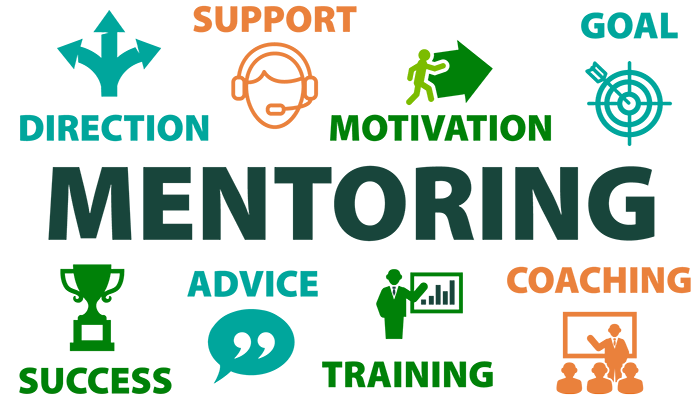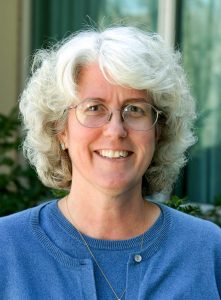
It’s already late January so a “Happy New Year” wish almost seems obsolete.
Looking forward brings much more optimism and potential than reflecting back on the year that was, so keeping that sense of well-wishes is useful especially since we have already seen many disruptions continuing in our personal and professional lives.
If you are not aware, January is National Mentoring Month and so part of our newsletter this month is focusing attention on the important set of relationships comprising mentoring. Most have found a need to call upon colleagues, collaborators, kindred spirits, and support systems to navigate the pandemics and then, to help find ways to recalibrate expectations, identities, and even how we interact together as we spend [or hope to spend] more time in person with each other.
While it is unlikely that all of these allies, networks, and individuals to whom you turn are those who immediately come to mind when thinking about mentors, it is worth realizing that the term has many different definitions and how one mentors or is mentored takes many different forms. The close, one-on-one relationship of a senior, experienced individual to the novice seeking advice and guidance who sees themselves having less to give to the exchange is a traditional definition, certainly. But in today’s era of research teams, teaching assistants and designer specialists, leadership teams, advising and writing groups, and other iterations of co-facilitated interactions, we can begin to see how multiple and peer mentors are both a more common experience and relationships of mutual benefit and contribution across members. The research on mentoring and hopefully, your own lived experience bears out the need to find those with whom to ally as components of your life and your identities need connection and a sounding board.
There continue to be numerous formal and informal opportunities to engage aspects of your work, personal, and community lives with others – this form of peer mentoring where we learn with and from each other. For example, the Work-Life Office continues offering opportunities to learn together on topics ranging from workplace culture, wellbeing at work, to recognizing burnout, flexible work arrangements, and building your best colleague to supporting caregivers. Learning Communities on a broad range of topics invite participants; the Diversity Research Network and Outreach and Engagement offer write-ins that provide time for reflection, conversation, and building relationships on topics of interest; Fellows programs offer space to think deeply about problems of teaching and leadership practices while learning with and from others in safe spaces. We highlight some brief comments by those who have participated in some of the opportunities offered by the Office of Faculty and Academic Staff Development as illustrations of ways we come together to support and mentor each other.
- “Being a member of this group is critical to my well-being in my role as a department chair, professionally and personally. It is a literal space where I am comfortable being vulnerable. Often when I have a challenge (or opportunity), I reach out to this group. In addition to the group being available, I know I can rely on the individual members who has experienced a similar opportunity or challenge.” Teresa Masten, Chair APAD, Women Chairs Group
- “As a new chair and one who assumed the role during the pandemic, I found the critical friends group to be a safe space where I could offer and receive support. The critical friends group reassured me that regardless of academic discipline, constitution of faculty, etc., many chairs face similar challenges and experience similar successes. The critical friends group offered me ideas on how to support faculty and how to supervise staff during a period of exhaustion and the “great resignation.” Participation in the DEO group came at a critical time for me and many of my colleagues, but the learnings from it will be long-lasting.” Sheneka Williams, Big Ten Academic Alliance Department Executive Program participant
- “During the COVID-19 pandemic, the disconnect between those doing the work in the trenches and those in formal leadership roles seemed to grow exponentially. Being allowed to peek behind the doors, confirmed some disconnects, but mostly allowed me to see that this university is filled with people on all levels who genuinely care about making this a better place for students, staff, faculty, and the community at large. At a time, where universities have an opportunity to reinvent themselves and change, it has been comforting to see that there are people asking uncomfortable questions on all levels and that people want answers from a variety of sources.” Senta Goertler, AAN Leadership Fellow
- “The Critical Friends program has been one of the most helpful resources for me as a relatively new department chair. While other programs provide important information about the “nuts and bolts” of institutional administration, Critical Friends provides a collegial and confidential peer support network across campus. The structured nature of the Critical Friends approach ensures very purposefully, but open and supportive, discussions, typically aimed at helping peers deal with managerial/leadership challenges that often feel uniquely difficult but are fundamentally common among the group.” Brad Marks, Chair of Biosystems and Agricultural Engineering; Critical Friends Peer Mentoring for Chairs
There are many resources across campus for engaging in mentoring.
Some resources include the “The Science of Effective Mentoring in Science, Technology, Engineering, Medicine, and Mathematics (STEMM)” from the National Academies of Sciences, Engineering, and Mathematics (NASEM), and their more recent podcast series https://thescienceofmentorship.transistor.fm/. Focused on STEMM, the 2019 interactive online guide offers useful papers, programs ideas, and strategies for effective mentoring applicable across disciplines.
The Graduate School provides many tips and tools for mentoring graduate students as does the Diversity Research Network, NCFDD. Undergraduate research mentoring is actively supported through Undergraduate Research and Creative Activity.
Other mentoring for students takes place in multiple forms. New initiatives such as the Circles of Success Mentoring Programs within APUE, MSU Connect that connects students with alumni, and, emeriti faculty often provide feedback on teaching, manuscripts, and other aspects of careers to academics, and multiple college-level programs also exist. Additional resources can be found on the OFASD website and on specific college/unit websites.
- Montgomery, B. L: & Page, S. C. (2019), Mentoring beyond hierarchies: Multi-mentor[AM1] systems and models.
- Montgomery, B. L. (2017). Mapping a mentoring roadmap and developing a supportive network for strategic career advancement. SAGE Open. DOI: 10.1177/2158244017710288
Research
During the last two years, we learned a lot about the university’s scholarly enterprise. Its diversity was, in many ways, a blessing as so much disruption took place for those whose work depended on in-person data gathering with persons old and young, in formal organizations and informal communities. Yet, in spite of frustrations, setbacks, time delays, lost experiments, and stalled studies, we persisted and found different ways to think about the work we do as extended processes rather than only focused outputs.
Scholarship has many pieces to it, and that return to reviews of the extant literature, reframing of the research problem, or using one’s expertise to address community problems in different ways was a centerpiece of how we pulled ourselves through 2021, and may still be lightly stepping into 2022. Reclaiming our intellectual selves as reflected in scholarship is not always easy, and certainly brings with it assorted questions of funding, career trajectory, promotion and tenure, and scholarly fulfillment.
As we simultaneously build the MSU of 2030 with deep commitments to the state, the nation, and the world, needing to rethink our research and inquiry individually and collectively is at the heart of that longer-term goal. The many forms of funded and unfunded, basic and applied research and scholarship that happen across disciplines at MSU all contribute to that mission.
Having been caused to reflect on the inquiry that drives our publications, presentations, decisions, and at times, our careers could not have been better timed, even if it wasn’t voluntary. The new year promises more opportunity to see the ability we have to make important contributions, large and small, and to recognize how our efforts contribute to the shared missions of the university. Hopefully, we bring to the MSU 2030 spring discussions what we know about our intellectual work the needs of the communities we serve, and what we learned about our own ways of being in the scholarly space, regardless of appointment type. In this way, perhaps we keep the best of what we learned from the last two years of disruption and use those understandings to forge the research and scholarly path forward to our best future that represents a portion of a research university’s core purpose.


